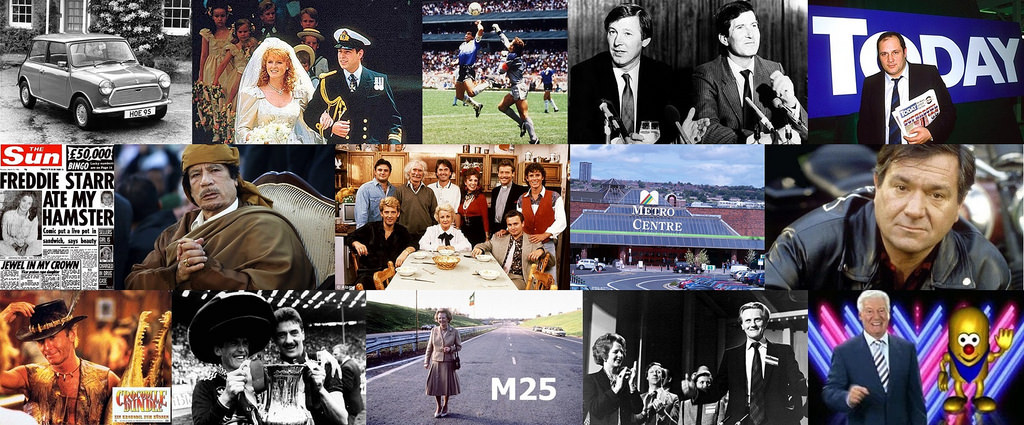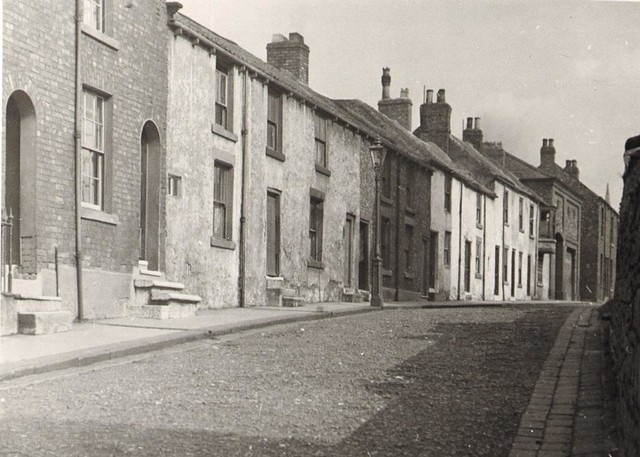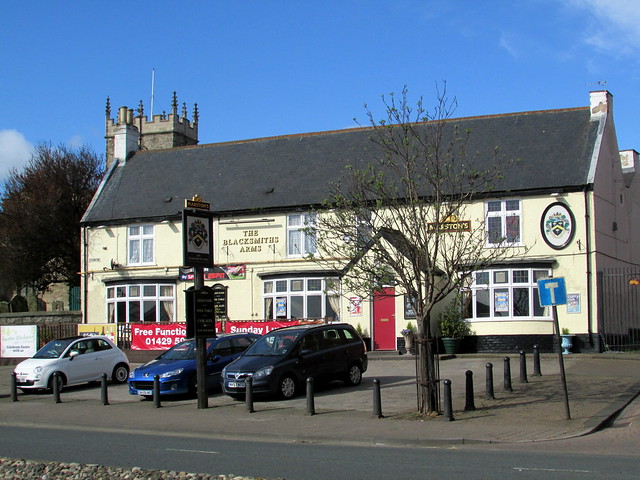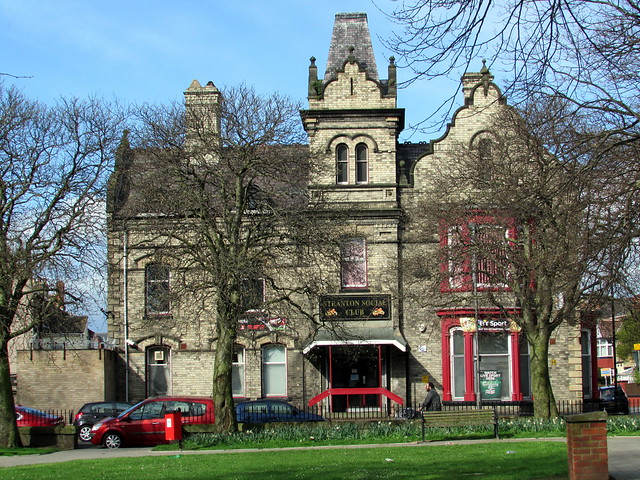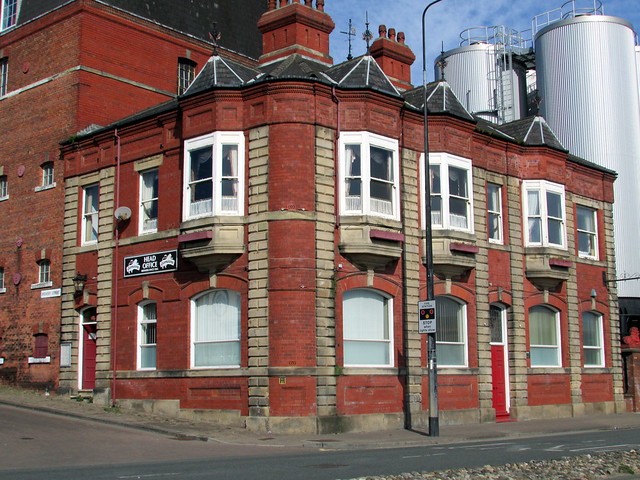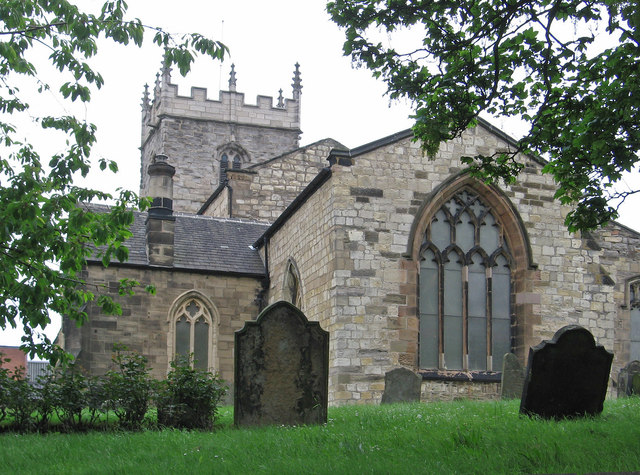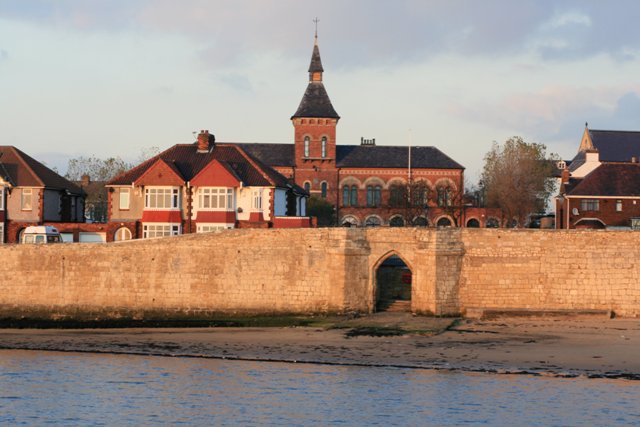That Was the Year That Was - 1986

-
Description
1986 Following a number of trouble free years in Space Exploration the Space Shuttle Challenger explodes shortly after take off watched by people live on TV around the world. The Internet Mail Access Protocol defined which opens the way for E-Mail and the same year the Human Genome Project is launched to understand the Human Makeup , this will open the way for great advances in the treatment of many illnesses. The worst ever Nuclear Disaster occurs as the Chernobyl Nuclear Power Station Explodes causing the release of radioactive material across much of Europe. In the UK (BSE), commonly known as mad cow disease is identified which causes many deaths over the next few years and a major reform in farming practices. In the year the Swedish Prime Minister, Olof Palme was assassinated in Stockholm, a nuclear reactor at Chernobyl (Ukraine) exploded, and Samora Machel, the President of Mozambique, died in a plane crash. In the world of music, the most dominant chart-toppers, each with 4 weeks at number 1, were Billy Ocean, the Communards, Berlin and the Christmas hit by Jackie Wilson 'Reet Petite'. The mid-1980s were a time of economic uncertainty coming on the back of a deep recession. In 1986, Margaret Thatcher was Prime Minister, Sir Alex Ferguson had just become manager of Manchester United and a soap opera called Eastenders had been running for a year. The year began with a bitter winter and average February temperatures of -1.2C (29.8F). Newspaper printers and police clashed outside News International's printing plant in Wapping as thousands of demonstrators protested at new working conditions and the move to east London from the famous Fleet Street. The US launched air strikes against Libya, killing dozens of people in Tripoli after President Reagan said Colonel Gaddafi's country was behind a night club bombing in West Berlin that killed two American soldiers. Lady Thatcher had supported the campaign. At home, a new series called Bread was aired for the first time, depicting life in Lady Thatcher's Britain. Set in Liverpool and featuring the Boswell family, the sitcom became the biggest show in the UK as it responded to the troubles many were facing at the time. The show followed the Catholic family's struggles with money - hence the title - and attracted more than 21 million viewers when Aveline married the Protestant vicar Oswald in 1988. Assembled In Britain (1986) BMC Sows The Seeds Of It's Own Destruction With The Mini? https://www.youtube.com/watch?v=DIo_uJ2qiCI" rel="nofollow">www.youtube.com/watch?v=DIo_uJ2qiCI The Christmas Day TV of Christmas 1986 proved to be a major success for the BBC... Christmas 1986 will be long remembered for the incredible ratings achieved by BBC1 due to some very canny scheduling. But what else was going on at the time? In the News: 1986 saw the wedding of Prince Andrew to Sarah Ferguson, in an age when Royal Weddings still meant something. Press barons Rupert Murdoch and Robert Maxwell entered a newspaper circulation war. In a key year for the press, The Independent newspaper was launched and Eddie Shah launched the first full colour daily tabloid, Today. In Sport: Maradona's "hand of god" sank England's chances in the Mexico World Cup. On the domestic front, Liverpool topped Division One and beat rivals Everton to the FA Cup. Oxford United won the League Cup. Frank Bruno was stateside in the big boxing clash of the year against Tim Witherspoon, while Edinburgh hosted the Commonwealth games. Motor racing driver Nigel Mansell was named BBC Sports Personality for 1986 Top of the charts: An unlikely Christmas hit for The Housemartins with the acapella Caravan of Love. Europe's anthemic Final Countdown was at number three whilst at number two a clever claymation video ensured Reet Petite by the late Jackie Wilson was bound for the summit. At the Box Office: Paul Hogan's Crocodile Dundee began a nine week stay at the top holding off the fantasy adventure Labyrinth. Back To The Future was the biggest film in the UK in 1986 followed by Rocky IV, Out Of Africa and Top Gun. Brit comedy Clockwise, which starred John Cleese at his manic best, came a creditable eighth. On TV Christmas Day (Thursday December 25th 1986) BBC1 8am Play School 8,20am The Muppet Babies 8.45am Roland Rat-The Series 9.10am Papa Panov's Special Day 9.25am This Is the Day 10am FILM: The Pure Hell of St.Trinians 11.30am Christmas Morning With Noel 1.25pm Every Second Counts 2pm Top Of The Pops Christmas Party 3pm The Queen 3.10pm FILM: Annie, The Musical 5.15pm News 5.25pm Russ Abbott Christmas Show 6pm Just Good Friends 6.35pm EastEnders (Part One) 7.05pm Only Fools And Horses: A Royal Flush 8.20pm Miss Marple: Murder At The Vicarage 10pm EastEnders (Part Two) 10.30pm News 10.40pm FILM: Educating Rita 12.30am Weather ITV 6.15am TV AM 9.25am Disney At Christmas 10.00am Christmas Family Service 11.00am He Man and She Ra Christmas Special 11.40am FILM: Swiss Family Robinson 2pm Ark Royal Rock Show 3pm The Queen 3.10pm FILM: Dumbo 4.20pm Strike It Lucky! 4.55pm News 5pm Cinderella-pantomime 6.30pm FILM: Never Say Never Again 9pm A Duty Free Christmas 10pm News 10.10pm Agatha Christie's Dead Man's Folly 1986 saw Michael Grade's sweeping changes come to fruition.This was the year of the EastEnders Christmas specials when an incredible 30 million viewers were glued to the soap opera as Den and Angie finally ended their turbulent marriage. The Radio Times even carried phone numbers to call "if you were affected by the issues raised". Commendable, but not really what you want to see on the Christmas Day billings pages... At 11.30am Noel Edmonds presented a live show from the top of the Telecom tower. The show's format had undergone some changes since its inception in 1984 as The Live, Live Breakfast Christmas Show, most notably a necessary name change. This year we were perhaps surprised to see Noel at all on Christmas Day given only weeks earlier the death of Michael Lush had ended his Late, Late Breakfast Show in the most tragic circumstances. Annie was the big afternoon kids film and the early evening featured specials from Russ Abbot (a recent recruit from ITV) and the last-ever Just Good Friends. In the middle of the EastEnders "sandwich" was the now traditional Only Fools and Horses. In a surprisingly subdued episode, played without canned laughter, Rodney fell for an uppercrust Duke's daughter, only for Del to see an opportunity to join the country set. Joan Hickson's Miss Marple investigated The Murder at The Vicarage. BBC1's late film was a premiere for Educating Rita, Willy Russell’s witty campus comedy starring Michael Caine and Julie Walters. Meanwhile on ITV, cartoons were the order of the day with a He Man and She Ra Christmas Special and the classic Disney film Dumbo. Michael Barrymore was making his name with Strike It Lucky! and James Bond was an ITV Christmas tradition, this year in the form of a be-wigged Sean Connery making his return after a 12 year break in Never Say Never Again. The film was dismissed by the regular Bond producer Cubby Broccoli, who feared it might harm the chances of Roger Moore's Octopussy. Duty Free presented an extended holiday episode in keeping with most sitcoms of the time. ITV also screened an Agatha Christie mystery Dead Man's Folly, to pick up viewers from Miss Marple no doubt. BBC2 celebrated the directorial work of Vincente Minnelli (Liza's dad) in the alliteratively titled Minnelli Musical. Later, there was a live Christmas concert from Amsterdam, while the classic Jack Lemmon/Walter Matthau film The Fortune Cookie was a part of a short season of Billy Wilder films. BBC2 celebrated the 85th birthday of composer Aaron Copeland and then screened Edith and Marcel, a film drama based on the obsessive and destructive relationship between 40s French icons, Edith Piaf and Marcel Cerdan. A true Geek highlight followed the film as Robert Powell told the first of five "chilling tales for dark winter nights". MR James' The Mezzotint was tonight's chiller. If the premise seems a bit Jackanory then it would come as no surprise the Jackanory production team were behind the series! Billy Wilder film Fedora was BBC2's Christmas Day late film. Channel Four only four years old already had something of a tradition in the regular Christmas Day showing of Raymond Briggs animation The Snowman... And in the Radio Times... Oh dear! Okay, so I'm no fan of soap opera (least of all EastEnders) but for the Christmas issue of the (then) best-selling magazine in Britain this is, quite frankly, an awful cover. This just feels calculated at worst and lazy at best. To be fair, EastEnders was huge at the time so it would certainly generate sales yet when everyone who wanted a BBC Christmas listings guide had to buy RadioTimes there is little reason the cover should be anything other than purely decorative. This was the only year I've felt embarrassed buying the magazine. On the positive side it was followed by two beautifully illustrated covers for Christmas 1987 and 1988. Tellingly perhaps, the 1988 issue is officially the biggest magazine sale ever in this country. Some 11.2 million people purchased the magazine that year. As for this one? Just over ten million sales... 1986 Timeline January – Production of the Vauxhall Belmont compact saloon begins, giving buyers a traditional saloon alternative to the Astra hatchback and estate models. 9 January - Michael Heseltine resigns as Defence Secretary over the Westland affair. After three successive monthly falls in unemployment, the jobless count for December 1985 increased by nearly 15,000 to 3,181,300. 12 January – Game show Catchphrase begins on ITV hosted by Roy Walker along with the computer generated character Mr. Chips. 20 January – The United Kingdom and France announce plans to construct the Channel Tunnel, which they hope to open by the early 1990s. 24 January – Leon Brittan resigns as Trade and Industry Secretary over the Westland affair. 31 January – Unemployment for this month has increased to 3,204,900 – a postwar high which accounts for 14.4% of the workforce. February – Heavy snow and sub zero temperatures affected most of Britain during the month. 6 February – The government scraps plans to sell Austin Rover to Ford. 12 February – The Franco-British Channel Fixed Link Treaty is signed at Canterbury as the Channel Tunnel plans move forward. 15 February – In the Wapping dispute, fifty-eight people are arrested by police at a demonstration. 17 February – The UK signs the Single European Act. 4 March – The national tabloid newspaper Today launches. It pioneers the use of computer photo typesetting and full-colour offset printing at a time when British national newspapers are still using Linotype machines and letterpress. 5 March – The High Court disqualifies and fines 81 Labour councillors for failing to set a rate. 13 March – The Sun newspaper alleges that comedian Freddie Starr ate a live hamster. 18 March – Inheritance Tax replaces Capital Transfer Tax. 19 March – Buckingham Palace announces the engagement of Prince Andrew to Sarah Ferguson; they will be married later this year. 23 March – Chelsea are the first winners of the Football League's new Full Members Cup, beating Manchester City 5-4 in the final at Wembley, although Manchester City clawed the deficit to a single goal in the last five minutes after being 5-1 down. 29 March – The first high-speed catamaran ferry is introduced into service in the British Isles, HSC Our Lady Patricia on Sealink British Ferries' Portsmouth–Ryde passage. 31 March - The Greater London Council is abolished, as are the metropolitan county councils of West Midlands, Greater Manchester, Merseyside, Tyne and Wear, West Yorkshire and South Yorkshire. A fire causes extensive damage at Hampton Court Palace in Surrey. The Haig Pit, Whitehaven, Cumbria closes. April – Hanson Trust concludes its takeover of the Imperial Group for £2.5 billion. 7 April – Clive Sinclair sells rights to ZX Spectrum and other inventions to Amstrad. 15 April – The government's Shops Bill 1986, which would have liberalised Sunday shopping, is defeated in the House of Commons on its second reading: the Thatcher government's only defeat in the Commons. 17 April - Journalist John McCarthy is kidnapped in Beirut, where three other hostages are found dead. The Revolutionary Cells (RZ) claims responsibility as revenge for the recent American bombing of Libya. A treaty is signed, ending the supposed Three Hundred and Thirty Five Years' War between the Netherlands and the Isles of Scilly. 20 April – Oxford United, who only joined the Football League in 1962 and are in the First Division for the first time, win the Football League Cup with a 3-0 win over Queens Park Rangers at Wembley. 28 April – The first phase of the MetroCentre, Europe's largest indoor shopping centre, in Gateshead, is opened. The remainder of the centre is set to open this autumn. 29 April – The Duchess of Windsor is buried at Frogmore. 30 April – Rioting erupts overnight in prisons across Britain. Dozens of prisoners escape, while prisoners at Stafford Prison set the prison canteen alight by smashing windows and dumping a burning mattress onto the roof. The worst disturbances come at Northeye Prison in Sussex, where a 70-strong mob of prisoners takes over the jail and sets fire to the canteen, hospital wing and sports hall. May – The last Talbot badged passenger cars are built in Britain and France by Peugeot, who will continue making their own cars at the former Rootes Group plant near Coventry and the former Simca production facilities in France. Peugeot is to continue the Talbot brand for commercial vehicles, and production of the Horizon range will continue in Spain and Finland until next year. 2 May – Liverpool win the Football League First Division title for a record 16th time after winning 1-0 at Chelsea. Kenny Dalglish, in his first season as the club's player-manager, scores the goal which gives Liverpool the title. 8 May – Labour makes large gains in local council elections, collecting 37% of the votes nationally compared to the Conservatives on 34% and the Alliance on 26%. These are the first national elections to be held since the recent abolition of the metropolitan councils. 10 May – The first all Merseyside FA Cup final ends in a 3–1 win for Liverpool over Everton, who become only the third team this century to win the double, having already secured the Football League First Division title. 21 May – The Harrison Birtwistle opera The Mask of Orpheus premiers in London. 10 June – Patrick Joseph Magee found guilty of the Brighton hotel bombing of 20 months ago and sentenced to life imprisonment. 12 June - Derek Hatton, leader of Liverpool council, is expelled from the Labour Party for belonging to the entryist Militant group. Austin Rover is renamed the Rover Group four years after the name change from British Leyland. 22 June – The England national football team's hopes of winning the World Cup are ended with a 2–1 defeat in the quarter-finals by Argentina, a game in which Diego Maradona is allowed a blatantly handballed goal. 23 June – Patrick Magee is jailed for life for the Brighton bombing of October 1984 as well as other IRA bombings. 24 June – Ian Paisley's Democratic Unionist Party stage protest at dissolution of Northern Ireland Assembly. 29 June - Richard Branson beats the speed record for a transatlantic crossing by boat in Virgin Atlantic Challenger II but is denied the Blue Riband award. The World Cup ends in Mexico with Argentina as winners and West Germany runners-up, but England's Gary Lineker wins the Golden Boot, having finished as the competition's leading scorer with six goals. Lineker, who has been at Everton for the last year and was the First Division's top scorer, is reported to be on the verge of a transfer to FC Barcelona of Spain. July – Nissan begins production of the Bluebird at its landmark factory near Sunderland. 1 July – Gary Lineker becomes the most expensive British footballer ever in a £2.75 million move from Everton to FC Barcelona. 2 July – 24 hours after Gary Lineker's transfer, Ian Rush sets a new transfer record for a British footballer when he agrees a £3.2 million move from Liverpool to Juventus of Italy, but is loaned back to Liverpool for a season and will not play his first game for Juventus until at least August 1987. 4 July – A policeman is cleared of the manslaughter of five-year-old John Shorthouse, who was killed in an armed raid on a house in Birmingham in August last year. 10 July – Austin Rover launches its new Honda-based Rover 800 executive car, which replaces the decade-old Rover SD1 and is part of a joint venture with Japanese carmaker Honda. The car will also be sold in America under the Sterling marque. The Honda version will be badged as the Honda Legend. 12 July – Rioting breaks out at Portadown in Northern Ireland between Protestants and Catholics. 17 July – It is announced that unemployment rose to 3,220,400 in June. It has now exceeded 3 million for nearly five years. 21 July – A report finds that 20% of British children are now born out of wedlock. 23 July – Prince Andrew, Duke of York, marries Sarah Ferguson at Westminster Abbey in London. 24 July – 2 August – The Commonwealth Games are held in Edinburgh. 28 July – Estate agent Suzy Lamplugh vanishes after a meeting in London. 30 July – A MORI poll shows that Labour are now nine points ahead of the Conservatives with 41% of the vote, with Liberal/SDP Alliance support now at 25%. 8 August – Rival gangs of Manchester United and West Ham United fans clash on a Sealink ferry bound for Amsterdam where the two clubs are playing pre-season friendlies. The UEFA ban on English clubs in European competitions is continuing for a second season, and there are now fears that English clubs may not even be able to play friendlies overseas. 13 August – The Eurotunnel Group is formed to operate the Channel Tunnel. 15 August – The latest MORI poll shows that the Conservatives have eliminated Labour's nine-point lead and drawn level with them by gaining 37% in the latest opinion poll, in the space of just over two weeks. 16 August – Figures released by the government reveal that a record of nearly 3,100,000 people claimed unemployment benefit last month, although the official total of unemployed people in Britain is still short of the record of nearly 3,300,000 which was set two years ago. 19 August – The Privatisation of the National Bus Company begins with the first sale of a bus operating subsidiary, Devon General, in a management buyout. 22 August – John Stalker, deputy chief constable of Greater Manchester police, is cleared of misconduct over allegations of associating with criminals. 25 August – Economists warn that a global recession is imminent, barely five years after the previous recession. 29 August – Britain's oldest twins, May and Marjorie Chavasse, celebrate their 100th birthday. September – GCSE examination courses replace both GCE 'O' Level and CSE courses for 14-year olds. 6 September – First episode of medical drama serial Casualty airs on BBC One. It will still be running on television more than twenty five years later. 8 September – Margaret Thatcher officially opens the first phase of the Nissan car factory at Sunderland, which has been in use for two months. It is the first car factory to be built in Europe by a Japanese car maker. 14 September – Fears of another recession in Britain are eased by economists at Liverpool University predicting 3.1% economic growth next year. 18 September – It is announced that unemployment rose to 3,280,106 in July. 19 September – Two people are killed and 100 injured at the Colwich rail crash. 24 September – The floatation of the Trustee Savings Banks attracts a record of more than 4 million applications for shares. 7 October – The first edition of The Independent was published. 9 October – "Babes in the Wood" murders: Two girls, Nicola Fellows (aged nine) and Karen Hadaway (aged 10), are reported missing in Moulsecoomb, Brighton. 10 October – "Babes in the Wood" murders: Two bodies found in Wild Park, Brighton, are identified as those of the two girls reported missing yesterday and a murder investigation is launched; no-one is ever convicted. 12 October – Elizabeth II and The Duke of Edinburgh visit the People's Republic of China, the first ever visit to that country by a British monarch. 14 October – The MetroCentre, a shopping complex built on the Tyneside Enterprise Zone, is opened. It is similar in concept to the Merry Hill Shopping Centre that is being developed near Dudley in the West Midlands. The MetroCentre is officially the largest shopping complex in Europe. Among the MetroCentre's tenants is Marks & Spencer, whose department store there is its first out of town outlet. 24 October – The UK breaks off diplomatic relations with Syria over links to the Hindawi Affair. 26 October - Bus deregulation begins in the United Kingdom, except Greater London and Northern Ireland. Jeffrey Archer resigns as Deputy Leader of the Conservative Party over allegations concerning prostitutes. 27 October – "Big Bang Day": London Stock Exchange is computerised, and opens to foreign companies. 28 October – Jeremy Bamber is found guilty of the murder of his parents, sister, and twin nephews and is sentenced to life imprisonment with a recommended minimum of 25 years, which is likely to keep him behind bars until at least 2011. 29 October – Margaret Thatcher opens the completed M25 London Orbital Motorway. November - First UNESCO World Heritage Sites in the U.K. designated: Giant's Causeway and the Causeway Coast (Northern Ireland); Durham Castle and Cathedral; Ironbridge Gorge; Studley Royal Park (including the ruins of Fountains Abbey); Stonehenge, Avebury and Associated Sites; and Castles and Town Walls of King Edward in Gwynedd (Wales). Launch of the second generation Vauxhall Carlton, largest model in the Vauxhall range. It will be sold as the Opel Omega on the continent, and all European versions of the car will be built in West Germany. 3 November – The Conservatives top a MORI poll for the first time this year, coming one point ahead of Labour with 40% of the vote. Liberal/SDP Alliance support has slumped to 18%. 6 November - 45 oil workers are killed when a Chinook helicopter carrying them from the Brent oilfield crashed. Alex Ferguson is appointed manager of Manchester United football club following the dismissal of Ron Atkinson after more than five years in charge. United won two FA Cups under the management of Atkinson but have not won the league title since 1967 and are now second from bottom in the Football League First Division. Chancellor Nigel Lawson announces a £4.6 billion rise in public spending. 7 November – Sir James Goldsmith's £5 billion bid for the Goodyear Tire and Rubber Company is rejected. 13 November – It is announced that unemployment fell by 96,000 in October. 18 November – Ian Brady and Myra Hindley, who are both still behind bars some 20 years after their Moors Murders convictions, confess to the murders of two missing children. They admit their responsibility for the deaths of Pauline Reade, who vanished in July 1963 at the age of 16, and Keith Bennett, who was last seen in June 1964 at the age of 12. Police had suspected that the pair were among the Moors Murders victims soon after beginning their investigation on the arrest of Brady and Hindley in October 1965, but did not find the bodies or indeed any evidence to be able to press charges. 20 November – Police begin their search for the two newly identified Moors Murders victims. 21 November – The government launches a £20 million campaign to warn members of the public about the dangers of AIDS. December – The first case of Bovine spongiform encephalopathy is diagnosed in British cattle. 1 December – The government launches an inquiry into financial irregularities at Guinness. 3 December – 4 million people apply for shares in British Gas in ancitipation of floatation next week. 4 December – 20-year-old roofer Russell Bishop is charged with the "Babes in the Wood" murders in Brighton two months ago but will be acquitted. 8 December – British Gas shares are floated on the Stock Exchange. The initial public offering of 135p per share values the company at £9 billion, the highest equity offering ever at this time. 17 December – The world's first heart, lung and liver transplant is carried out at Papworth Hospital in Cambridgeshire. 18 December – It is announced that unemployment fell to a four-year low of less than 3,100,000 in November. 22 December – David Penhaligon, a leading Liberal Party MP, dies in a car crash near Truro in Cornwall at the age of 42. 25 December – The highest audience of all time for a British television drama is attracted by the Christmas Day episode of EastEnders, the BBC 1 soap opera, in which Den Watts (Leslie Grantham) serves the divorce papers on his wife Angie (Anita Dobson) after discovering that she had feigned a terminal illness to try to stop him from leaving her in an episode aired in October this year. More than 30 million viewers tune in for the episode of the TV series which first went on air in February 1985. 29 December – Harold Macmillan, Earl of Stockton and former prime minister, dies at the age of 92 at his home, Birch Grove in East Sussex. Inflation reaches a 19-year low of 3.4%. Introduction of Family credit, a tax credit for poorer families. Bank of England withdraws its guidance on mortgage lending. Establishment of National Museums and Galleries on Merseyside group of institutions, funded through national government. The millionth council house in the United Kingdom is sold to its tenants in Scotland, seven years after the right to buy scheme was launched. Mathematician Simon Donaldson wins a Fields Medal. Television 4 January – Televised football returns to British television after the contractual dispute from the previous year is resolved. 12 January – Catchphrase makes its debut on ITV. 28 January – NASA's Space Shuttle Challenger spacecraft disintegrates. Pictures from CNN in the United States (owned by Turner Broadcasting System, then owners of American superstation WTBS), are aired in countries around the world. 19 February – BBC1 airs Round Britain Whizz, an edition of the science series Q.E.D..The 30 minute programme consists of a sped up flight around the coastline of Great Britain with guest appearances from geologists and TV personalities including Patrick Moore, David Bellamy and Terry Wogan telling the viewer about the geology and natural history of certain areas. 10 March – The first advert for a sanitary towel is broadcast on British television, on Channel 4. 1 April – All commercial activities of the BBC are now handled by BBC Enterprises Ltd. 15 April – The last episode of children's cartoon series Bananaman is broadcast. 21 May – A Very Peculiar Practice airs. 31 May–29 June – Telvised coverage of the 1986 FIFA World Cup. England exit on 22 June with a 2-1 defeat to Argentina, who go on to beat West Germany in the final to win the trophy for the third time. 18 June – In Coronation Street the Rovers Return pub is gutted by fire with landlady Bet Lynch (Julie Goodyear) trapped inside. 23 July – In London, Prince Andrew, Duke of York marries Sarah Ferguson at Westminster Abbey. The event receives significant television coverage both in the UK and around the world. 5 August – Michael Cashman makes his EastEnders debut as Colin Russell, the soap's first gay character. 9 August – The Yorkshire Television ITV region becomes the first UK terrestrial channel to broadcast 24 hours a day, initially simulcasting the cable and satellite music video channel Music Box throughout the night. The other ITV regions gradually switch to 24 hour television over the next two years. 26 August – In Emmerdale Farm, original character Pat Sugden dies after rolling her car down a hillside to avoid a flock of sheep. 6 September – Part One of The Trial of a Time Lord is broadcast on BBC1, marking the return to air of Doctor Who after an 18-month hiatus. The first episode of medical drama Casualty airs on BBC1. 19 September – Central TV revives New Faces, a 1970s talent show produced by its predecessor, ATV. Styled as New Faces of '86, it is presented by Marti Caine, a winner from the previous version. 12 October – Every Loser Wins performed by the actor Nick Berry begins a three-week run at the top of the UK Singles Chart after featuring in recent episodes of EastEnders. The song was an instant hit on release and went on to win its writers an Ivor Novello Award. 16 October – The first two-hander episode of EastEnders, featuring Den and Angie Watts (Leslie Grantham and Anita Dobson), is aired by BBC1. The episode, in which Angie tells Den she has six months to live after he tells her he wants a divorce, was an experiment as the two-hander format had not been tried in a British soap before, but received well by viewers and critics. 27 October – The Australian soap Neighbours makes its British television debut on BBC1, a year after it was first aired in its homeland. BBC One starts a full daytime television service. Before today, excluding special events coverage, BBC One had closed down at times during weekday mornings and afternoons broadcasting trade test transmissions and, from May 1983, Pages From Ceefax. 16 November – Dennis Potter's critically acclaimed television serial The Singing Detective makes its debut on BBC1. 7 December – Jack Rosenthal's original two hour TV movie of London's Burning, directed by Les Blair is broadcast on ITV. It returns for a full series in February 1988. 13 December – Comedian Duggie Small wins New Faces of '86. 23 December – Ringo Starr narrates his last ever Thomas the Tank Engine and Friends episode, the second series finale, "Thomas & the Missing Christmas Tree". 25 December – 30.15 million tune in to watch "Dirty" Dennis Watts hand wife Angie her divorce papers in EastEnders, making it the highest rated episode of any drama in British television history. 26 December – The Rainbow 30 minute Christmas special, The Colours of the Rainbow is the highest ever rating episode of the show. It was thought that Rainbow would end following this episode, but Thames Television renewed the contract after good ratings. BBC1 10 January – Lovejoy (1986–1994) 8 February – Every Second Counts (1986–1993) 23 April – Jossy's Giants (1986–1987) 1 May – Bread (1986–1991) 28 May – Pingu (1986–1998, 2004–2006) 31 August – The Monocled Mutineer (1986) 1 September – Brush Strokes (1986–1991) 6 September – Casualty (1986–present) 27 October – BBC News at One (1986–present) 16 November – The Singing Detective (1986) BBC2 12 May – Naked Video (1986–1991) ITV 8 January – Allsorts (1985–1995) 10 January – Central Weekend (1986–2001) 12 January – Catchphrase (1986–2002, 2013–present) 14 January – Boon (1986–1992, 1995) 16 February – Hot Metal (1986–1989) 3 May – Get Fresh (1986–1988) 20 October – Executive Stress (1986-1988) 29 October – Strike It Lucky (1986–1999) 31 October – The Two of Us (1986–1990) 22 November – Beadle's About (1986–1996) Channel 4 11 April – The Chart Show (1986–1998, 2008–2009) Music The first number 1 single of 1986 was the breakthrough hit for London synthpop duo the Pet Shop Boys. Their song "West End Girls" had climbed the charts during late 1985 and reached number 1 for two weeks in January. They would have three more top 20 hits this year as well as two top 20 albums, and were still reaching the top 10 in 2006, twenty years later. Another popular synthpop duo this year were Erasure, with their song "Sometimes" reaching number two in the autumn; this success would be followed by many more hits throughout the decade. After four successful years, the band Wham! split up in the spring. Made up of George Michael and Andrew Ridgeley, they finished with a farewell concert at Wembley Stadium, a greatest hits album The Final which reached number 2, and the single "The Edge of Heaven", their fourth and final number 1. George Michael also reached number 1 this year with a solo release, A Different Corner, and went on to have a highly successful solo career. The formation of the charity Comic Relief provided an unusual song from Cliff Richard, a singer with several huge hits in the 1950s and '60s. He teamed up with the cast of the popular sitcom The Young Ones (itself named after a Richard song) for a new version of his 1959 single "Living Doll", half sung by Richard and half shouted by the Young Ones cast. With proceeds going to the charity, it reached number one for three weeks and was Richard's first number 1 of the decade. Another novelty number one was "The Chicken Song", sung by the cast of satirical puppet show Spitting Image. With lyrics such as "Hold a chicken in the air, stick a deckchair up your nose" it was intended as a parody of novelty holiday songs which were popular at the time, and also topped the chart for three weeks. American singer Madonna had the biggest-selling album of the year with "True Blue". All singles released from it made the top five, including the number 1s "Papa Don't Preach", "True Blue", and "La Isla Bonita" which topped the chart the year after. The biggest-selling single of the year went to The Communards, with a hi-NRG cover of the disco song "Don't Leave Me This Way". The band included singer Jimmy Somerville who had previously enjoyed success with Bronski Beat, and later started a solo career. The Christmas number one single was something of a surprise, a re-issue of Jackie Wilson's 1957 single "Reet Petite". Wilson had died in 1984, but the song been re-issued after being used in a television advert for Levi's, with a new video made of a Claymation version of Wilson. Having first been released 29 years earlier, it broke the record for the longest time between a single being released and it hitting number 1, a record that would last until 2005 when Tony Christie's 1971 song "(Is This the Way to) Amarillo" topped the chart. The Orchestra of the Age of Enlightenment was founded in London by a group of period music enthusiasts, going on to become one of the UK's leading orchestras. Harrison Birtwistle's innovative opera, The Mask of Orpheus, was premièred in London, to great critical acclaim. Michael Nyman also came up with a new opera, The Man Who Mistook His Wife for a Hat, a chamber work with a minimalist score. Events January - The Adrian Boult Hall is opened at Birmingham Conservatoire by the Duchess of Gloucester. 15 March – "Heartbeat '86", a charity concert for the Birmingham Children's Hospital, is held at the NEC. Performers include Roy Wood, UB40, The Moody Blues, Electric Light Orchestra and Robert Plant. George Harrison makes a surprise appearance playing Johnny B. Goode with everyone at the end of the show. 7 June - Queen start The Magic Tour which becomes their final tour with all original members and also their most successful tour. 27 October - Michael Nyman's chamber opera The Man Who Mistook His Wife for a Hat is premiered at the Institute of Contemporary Arts, London. Charts Number one singles "Merry Christmas Everyone" - Shakin' Stevens "West End Girls" - Pet Shop Boys "The Sun Always Shines on TV" - a-ha "When The Going Gets Tough, "The Tough Get Going" - Billy Ocean "Chain Reaction" - Diana Ross "Living Doll" - Cliff Richard and The Young Ones "A Different Corner" - George Michael "Rock Me Amadeus" - Falco "The Chicken Song" - Spitting Image "Spirit in the Sky" - Doctor and the Medics "The Edge of Heaven" - Wham! "Papa Don't Preach" - Madonna "The Lady in Red" - Chris de Burgh "I Want to Wake Up with You" - Boris Gardiner "Don't Leave Me This Way" - The Communards "True Blue" - Madonna "Every Loser Wins"- Nick Berry "Take My Breath Away" - Berlin "The Final Countdown" - Europe "Caravan of Love" - The Housemartins "Reet Petite" - Jackie Wilson -
Owner
brizzle born and bred -
Source
Flickr (Flickr) -
License
What does this mean? Attribution-NonCommercial-ShareAlike License
-
Further information
Link: https://www.flickr.com/photos/20654194@N07/18008126581/
Resource type: Image
Added by: Peter Smith
Last modified: 7 years, 11 months ago
Viewed: 933 times
Picture Taken: 2015-05-23T16:58:28 -
Co-Curate tags
